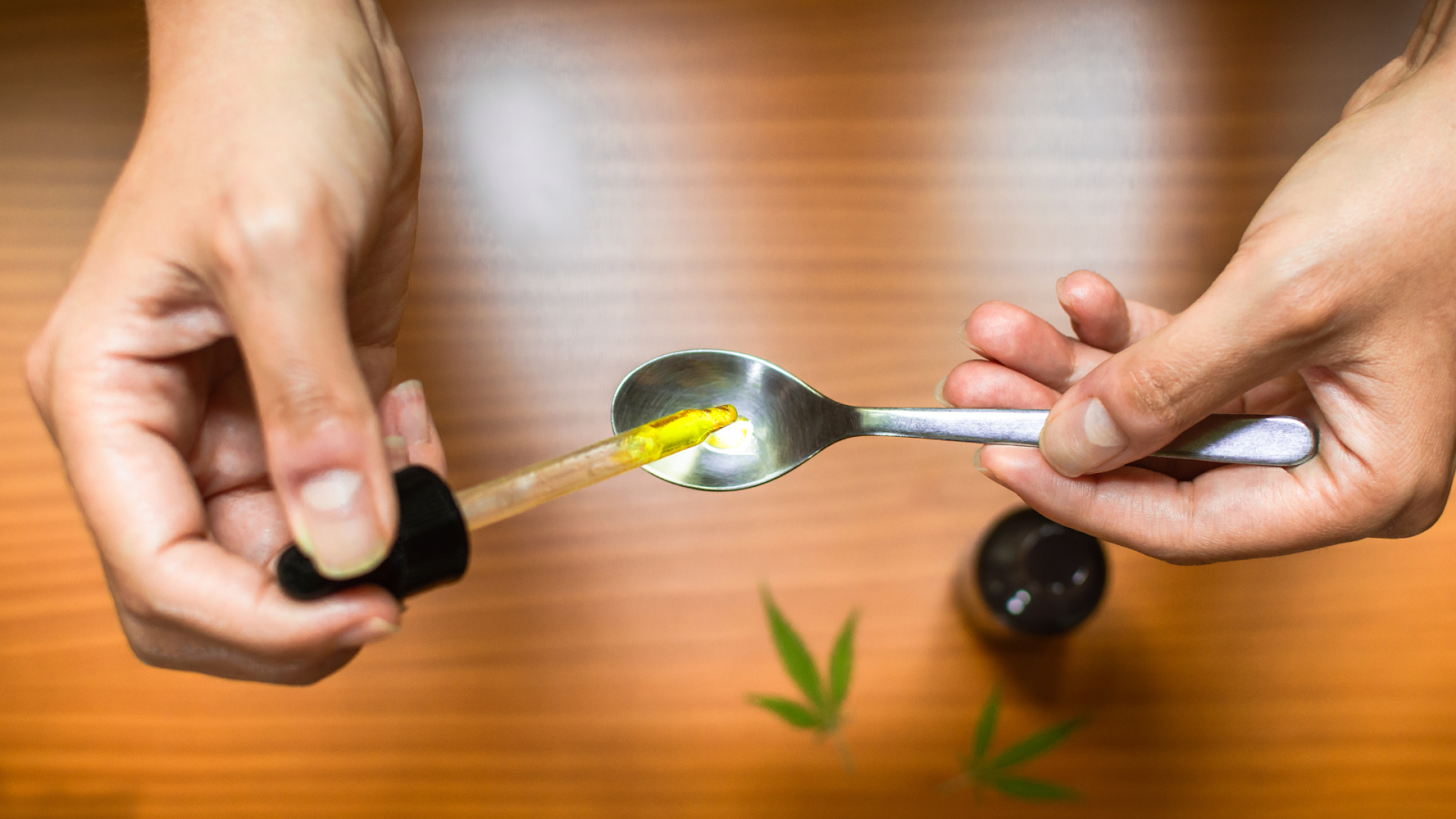Key Takeaways
- THC-X is a newly identified cannabinoid with potential psychoactive properties and therapeutic benefits, currently under research to understand its effects and safety profile.
- Legal and accessibility status of THC-X is evolving, with its place in the market and regulatory frameworks still being determined as research progresses.
- The future of THC-X holds promise for medical treatments, recreational cannabis experiences, and industry innovation, contingent on continued scientific exploration and responsible regulatory approaches.
Among the latest cannabinoids to enter the spotlight is THC-X, a compound that has sparked curiosity and excitement within the cannabis community and beyond. As we discuss the intricacies of THC-X, it's crucial to understand its place within the broader context of cannabis research and its potential impact on both consumers and the industry at large.
Unlock the Potential of Rare Cannabinoids with SOULStep into the fascinating world of holistic health with Soul. Discover the lesser-known cannabinoid, CBT, and how it could play a crucial role in fine-tuning your wellness routine.
|
The Hype On THC-X
Unlike its more famous counterparts, THC (tetrahydrocannabinol) and CBD (cannabidiol), THC-X is less understood, primarily due to its recent discovery and the nascent stage of research surrounding it. Chemically, THC-X shares similarities with THC, the psychoactive component known for producing the "high" associated with cannabis use, but it also possesses distinct characteristics that may differentiate its effects and applications.
The discovery of THC-X was a result of ongoing efforts to map the cannabis genome and understand the plant's complex chemical makeup. Researchers are intrigued by the potential of THC-X, considering it may offer unique benefits or effects not seen in other cannabinoids. Early research suggests that THC-X could have a potency and efficacy profile that sets it apart from THC, potentially offering users different experiences.
THC-X's Potential Medical And Therapeutic Effects
The potential medical and therapeutic applications of THC-X are a significant focus of ongoing research. Given the therapeutic uses of other cannabinoids like CBD and THC in managing pain, anxiety, and sleep disorders, there is considerable interest in determining whether THC-X could offer similar or enhanced benefits. If THC-X possesses anti-inflammatory, analgesic, or anxiolytic properties, it could become a valuable addition to the cannabinoid therapy toolkit. However, rigorous clinical trials are necessary to confirm these effects and establish safe, effective dosages.
Unique Benefits Over Other Cannabinoids
THC-X is an area of ongoing research, and while preliminary studies suggest it may have potential therapeutic benefits, more research is needed to fully understand its effects and potential applications.
Some research suggests that THC-X may have properties that differ from traditional THC, including:
Appetite Suppression
Some studies indicate that THC-X may have appetite-suppressing effects, which could potentially be beneficial for individuals seeking weight management or addressing conditions related to overeating.
Neuroprotective Properties
There is evidence to suggest that THC-X may have neuroprotective properties, meaning it could help protect brain cells from damage associated with conditions such as neurodegenerative diseases.
Anticonvulsant Effects
Preliminary research also suggests that THC-X may have anticonvulsant properties, which could make it a potential candidate for the treatment of seizure disorders such as epilepsy.
However, it's essential to note that much of the research on THC-X is still in its early stages, and more comprehensive studies are needed to confirm its potential benefits and safety profile. Additionally, individual responses to THC-X may vary, and its effects may differ depending on factors such as dosage, administration method, and the presence of other cannabinoids and compounds in cannabis products.

Legal Status
THC-X, as a newly identified cannabinoid, falls into a regulatory gray area in many regions. Its legal status is often directly tied to the legal frameworks established for THC, CBD, and other cannabinoids, which can vary widely. In countries or states where cannabis is legal for medicinal or recreational use, THC-X may also be legal. However, the specific legal status of THC-X can be unclear due to the lack of explicit mention in legislation.
In regions where THC is strictly regulated or prohibited, THC-X could potentially face similar restrictions, especially if it is deemed to have psychoactive properties. Regulatory bodies are beginning to examine the implications of new cannabinoids like THC-X, assessing their safety, potential for abuse, and therapeutic benefits to determine appropriate legal classifications. As research into THC-X continues, its legal status could be subject to change, reflecting new findings about its effects and safety profile.
Accessibility
Accessibility to THC-X is currently limited, primarily due to the early stages of its development and research. Products specifically containing THC-X are not widely available, and its presence in the market is minimal compared to well-established cannabinoids like CBD and THC. Consumers interested in trying THC-X may find it challenging to locate reliable sources, as the production and distribution of THC-X products are still emerging.
How THC-X Fits Into The Broader Cannabis Industry
For the cannabis industry, the discovery of THC-X is a reminder of the plant's complex biochemistry and the potential for new product development. As researchers unveil more about THC-X, businesses are poised to explore its incorporation into products, potentially offering consumers new experiences and benefits. This could lead to the development of specialized strains, extracts, and products tailored to leverage THC-X's unique properties, enriching the market and providing more options for consumers.
Known And Potential Side Effects
The side effects associated with THC-X have yet to be fully characterized, but they may mirror those of other cannabinoids, particularly THC, given their chemical similarities. Users of THC-containing products can experience a range of effects, from dry mouth and red eyes to more significant concerns such as anxiety, paranoia, and impaired cognitive functions. Whether THC-X induces similar side effects, has a reduced side effect profile, or introduces new considerations is an area of active investigation.
Considerations For Users
For individuals interested in exploring THC-X, several considerations should be taken into account:
- Legal Status: Ensure that THC-X and products containing it are legal in your jurisdiction to avoid legal complications.
- Source and Quality: Obtain THC-X products from reputable sources that provide transparent information about their contents, sourcing, and production methods.
- Personal Health: Individuals with pre-existing health conditions, particularly those affecting mental health, should exercise caution. Consulting with a healthcare provider before trying THC-X or any new cannabinoid is advisable.
Research And Regulation
The development of a comprehensive regulatory framework for THC-X hinges on robust scientific research. Regulatory bodies require data on efficacy, safety, and potential for abuse to make informed decisions regarding the legal status and control measures for THC-X. As research progresses, regulations can be expected to evolve, aiming to protect consumers while allowing access to potentially beneficial compounds.
The Importance Of Responsible Use
Until more is known about THC-X, responsible use is crucial. This includes staying informed about the latest research findings, adhering to recommended dosages (once established), and being mindful of the individual variability in response to cannabinoids. The cannabis community's commitment to safety, education, and responsible consumption will play a vital role in integrating THC-X into the broader landscape of cannabis use.

Final Thoughts
The discovery of THC-X marks a significant milestone in the ongoing exploration of the cannabis plant, a journey that continues to reveal the depth and complexity of its potential. The future of this new compound, like that of any new cannabinoid, is shaped by the collective efforts of researchers, medical professionals, industry stakeholders, and the cannabis community. It is through continued exploration, education, and dialogue that we can unlock the full potential of THC-X and other cannabinoids, ensuring they contribute positively to health, society, and the economy.
Read also:
- THC Vs. THCA: Understanding The Effects And Potency Of Cannabis Compounds
- CBG: The Cannabinoid With Surprising Benefits
- The Emergence Of HHC In Cannabis Culture And Its Effects
Frequently Asked Questions
How does THC-X differ from THC?
The main difference lies in their chemical structure; THC-X has a fluorine atom, altering its interaction with cannabinoid receptors and producing somewhat different effects.
Is THC-X legal?
The legality of THC-X can vary by jurisdiction and is often in a legal gray area, similar to other synthetic cannabinoids. Always check local laws.
How is THC-X made?
THC-X is synthetically created in labs by altering the chemical structure of THC or similar compounds to include a fluorine atom.
Can THC-X be detected in drug tests?
It's unclear if standard drug tests can specifically detect THC-X, as it depends on the sensitivity and specificity of the test for various cannabinoids.
What products contain THC-X?
THC-X can be found in various forms, including vape cartridges, edibles, and tinctures, similar to other cannabinoids.
Is THC-X safe to use?
The safety of THC-X has not been extensively studied, and like other synthetic cannabinoids, it may carry risks not associated with naturally occurring THC.
How potent is THC-X compared to THC?
The potency of THC-X can vary, but due to its synthetic nature and chemical differences, it might have a different potency or impact than THC.
How long does THC-X stay in your system?
The duration THC-X remains detectable in your system can vary based on factors like metabolism, dosage, and frequency of use, similar to THC.
Does THC-X cause a high?
Yes, THC-X can cause psychoactive effects, including a high, although the experience may differ from that of traditional THC due to its unique structure.
Can you overdose on THC-X?
While there's limited data on THC-X, as with any substance, excessive consumption could lead to adverse effects. Caution is advised.
Sources:
- Cooray, R., Gupta, V., & Suphioglu, C. (2020). Current Aspects of the Endocannabinoid System and Targeted THC and CBD Phytocannabinoids as Potential Therapeutics for Parkinson’s and Alzheimer’s Diseases: a Review. Molecular Neurobiology, 57(11), 4878–4890. https://doi.org/10.1007/s12035-020-02054-6
- Kim, A., Kaufmann, C.N., Ko, R., Li, Z., & Han, B.H. (2019). Patterns of Medical Cannabis Use among Cancer Patients from a Medical Cannabis Dispensary in New York State. Journal of palliative medicine.
- Russo, E. B. (2011). Taming THC: potential cannabis synergy and phytocannabinoid-terpenoid entourage effects. British Journal of Pharmacology, 163(7), 1344–1364. https://doi.org/10.1111/j.1476-5381.2011.01238.x
- McDonald, J., Schleifer, L., Richards, J. B., & de Wit, H. (2003). Effects of THC on Behavioral Measures of Impulsivity in Humans. Neuropsychopharmacology, 28(7), 1356–1365. https://doi.org/10.1038/sj.npp.1300176
- Calabrese, E. J., & Rubio-Casillas, A. (2018). Biphasic effects of THC in memory and cognition. European Journal of Clinical Investigation, 48(5), e12920. https://doi.org/10.1111/eci.12920




